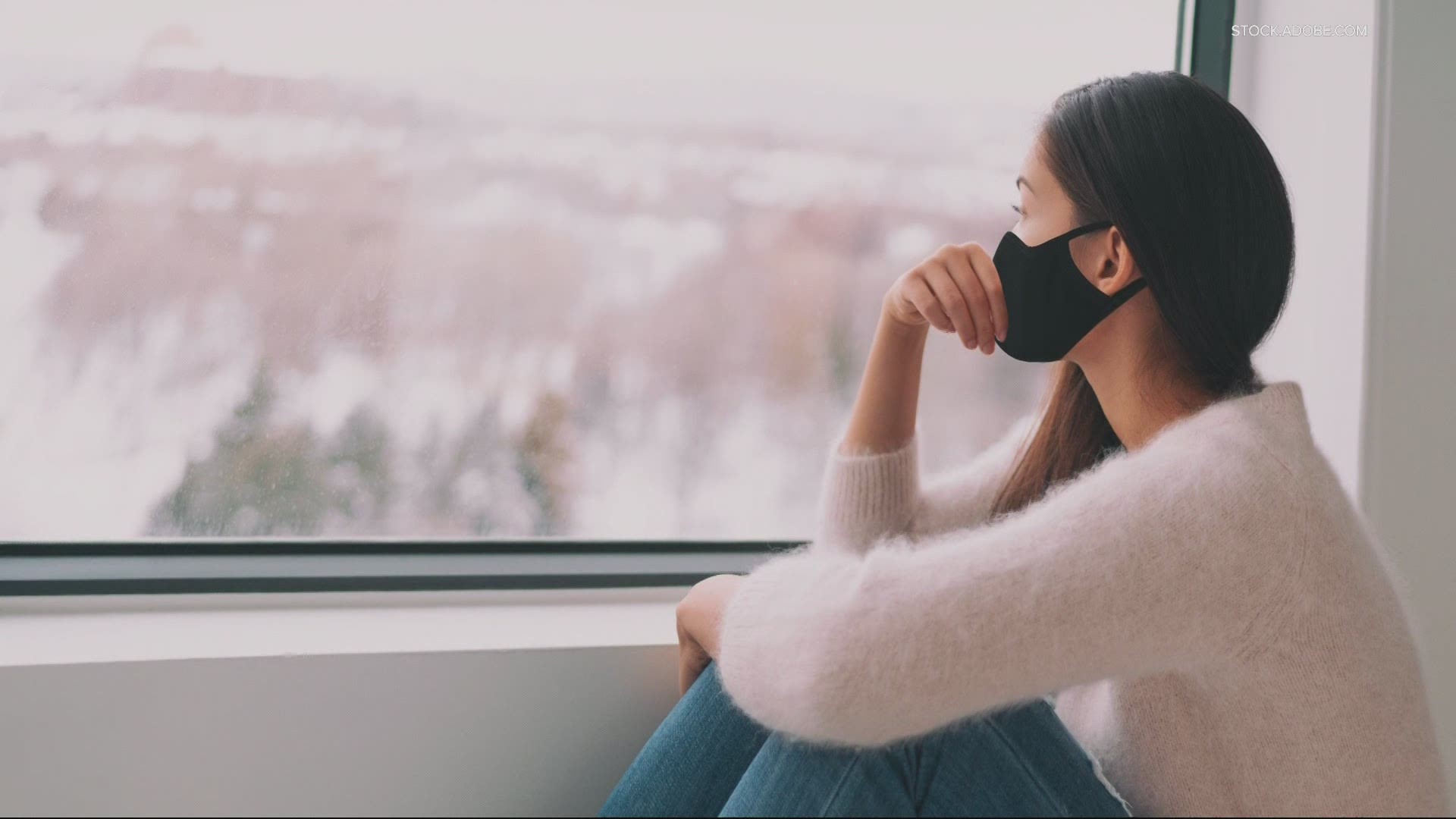PORTLAND, Ore. — Both the pandemic and increase in anti-Asian racism across the U.S. have been stressful for many Asian Americans. Now more are seeking mental health services.
KGW checked in with three different mental health professionals to get a snapshot of what they’ve been seeing.
From a psychiatrist's perspective
“I have noticed an uptick in general of people seeking mental health treatment,” said Dr. Pia Quimson-Guevarra. She is a psychiatrist in the Portland area.
“I’m noticing actually in the past couple months, even more interest from the AAPI community, I guess in light of the more anti-Asian sentiment and it is coming up more in people’s therapy,” Quimson-Guevarra said.
Her observations are generally mirrored by colleagues in the same field who say over the last year the impacts of COVID-19 and increase in anti-Asian incidents has resulted in some confusing emotions.
What a licensed psychologist is seeing
“There was definitely an uptick of people feeling really anxious about it, people feeling kind of scared about it. But at the same time maybe I’m not supposed to be scared. Maybe I’m blowing it out of proportion,” said Valerie Yeo, a licensed psychologist in Portland.
Yeo said she primarily works with people in the AAPI community and has seen more people with anxiety and depression.
She said in the beginning of the pandemic, many Asians felt unheard as news of violence against Asians spread more widely through word of mouth or on social media than through broader news outlets.
“Especially in a place like Portland which tends to be such a White space and I think a lot of people didn’t really feel seen or didn’t really feel like their experiences were validated just because no one was talking about it, which then I would say likely increased the rates of depression and anxiety,” said Yeo.
Now, she said some of her clients are worried about leaving the house.
“I have had multiple clients who have had incidents happen to them even in Portland. There’s definitely an undercurrent of fear,” she said.
Younger people seeking services at the Asian Health & Service Center
At the Asian Health & Service Center, Yu-Ling Chen said she’s seen younger people seeking help.
“Younger as in people who are 40s, 30s and sometimes younger, in school age,” Chen said.
“A lot of younger generations are getting told to stay home by their parents or seniors because they’re afraid that these kids are also going to become targets,” said Chen.
She said there’s also been bullying online
“They may not have the language ability to actually fully immerse in their own school,” Chen said.
“When they’re trying to make friends or get socialization online they run into problems of people who may be calling them names because of the Asian hate crimes we have been seeing.
"The good news is there seems to be a shift toward seeing mental health help as less of a stigma.
“In a lot of the younger communities I’m seeing, seeking help is something that is really encouraged and prioritized. So for those younger populations, I am seeing more acceptance around it,” said Yeo.
Getting help and seeing it as a preventative measure
Yeo said if people are having feelings that are making them anxious or depressed, it’s best not to ignore them.
“Often the harder we try to push a feeling down, the more it wants to come back, the harder and faster it tends to resurface. So, if we’re not providing space for it, it tends to come out sideways, whether that might be impacting your physical health, relationship or job,” said Yeo.
To help people work through stressful situations, the Asian Health & Service Center set up its COVID-19 Community Counseling Program, a free, multi-lingual counseling service for people living in Multnomah, Washington, and Clackamas counties. Languages available include Mandarin, Cantonese, Vietnamese, Korean and English.
“Just providing whatever we can to the community to make sure everybody is getting the support they need,” said Chen.
Speaking of support, Yeo said having a group of people who can validate what your feeling can be invaluable. Even reading books where you can see your own experiences reflected can help.
Another thing that may be helpful, self-care. Quimson-Guevarra said in her experience, many in the AAPI community tend to prioritize the needs of others.
“I feel that culturally it’s harder for us to take care of ourselves. We’re very ‘other’ focused like our family our friends. We need to take care of them first before we can take care of ourselves. But we tend to forget that if we can’t take care of ourselves then we can’t be there for other people,” said Quimson-Guevarra.
A final message to AAPI people feeling anxious or depressed
“What you’re feeling is real. What you’re feeling is valid and you don’t have to judge yourself for it. And there are others that are going through it too. You’re not alone,” said Yeo.
Phone numbers for the Asian Health & Service Center’s COVID Community Counseling Program:
Cantonese: 503-772-5894
Mandarin: 503-772-5895
Korean: 503-772-5896
Vietnamese: 503-772-5897
English: 503-772-5893
May is both Mental Health Awareness Month as well as Asian American Pacific Islander (AAPI) Heritage Month.

